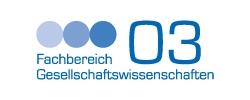- GU Home
- Faculties
- Faculty of Social Sciences
- Institute of Political Science
- Research Unit 'Democratic Innovations'
- Projects
- Participatory Innovations, Background & Effects
- Inequality and Direct Democracy in Europe
Inequality and Direct Democracy
Research Project Funded by the DFG (German Research Foundation)
General Describtion
Based on theories of participation, inequality and institutions, the research project quantitative-comparatively examined the effects of different direct democratic measures on socio-economic, legal, and political inequalities. We assumed that direct democracy has an impact on all of these dimensions of inequality. Additionally, we expected different effects connected to different measures on inequality as well as the configuration of the political field. We added to somewhat contradictory results of previous research, primarily based on Switzerland and the US, by deploying of a more extensive database. Thereby this project contributes to a sociopolitical discourse. We focused on the timespan between 1990 and 2015, because in many states direct democratic measures were introduced and established during the nineties.
First and foremost this project pursuesed an academic benefit. Additionally, it still presents itself to be a promissory source for answers to current, socio-political issues. Currently opportunities and risks of direct democratic measures are part of a worldwide discourse/discussion. Here, it is crucial to not jump to quick conclusions, but to wait for the results base on more extensive databases.
Aim of the project
The project investigated the following research questions:
- How do direct democratic decisions impact inequality within European societies?
- Do different types of direct democratic measures have different impacts on inequality?
- What impact do direct democratic measures have on the shift of conflict lines in the political sphere? Do they contribute to a (re-) configuration of the political field?
For the purpose of this project we observed referenda within European democracies within the period from 1990-2015 and examined how those direct democratic decisions affect different dimensions of inequality. We therefore differentiated between three dimensions of inequality namely socio economic, political and legal inequality and we further differentiate regarding the type of direct democratic measures, namely bottom- up referenda, top-down referenda and mandatory referenda.
Background
(New) modes of participation, such as direct democratic measures, for a long time have been presented as a "cure" for rising inequalities in western societies. In practice these aspirations have proven themselves to be rather unrealistic. At least since the “Hamburger Schulentscheid” direct democratic measures have often been estimated to rather increase inequality. It is presumed that direct democracy hinders equality and exacerbates inequality. But do direct democratic measures realy reinforce inequalities? This question is addressed not only within the public discourse but also in political science. While some authors proclaim the positive effect of referenda, others point to the dangers of direct democracy such as the possible discrimination of minorities. The current state of the art displays three research gaps that have not yet been addressed: first, the majority of academic work is limited to the comparative analysis on the subnational level (mostly Switzerland and the US). Second, predominantly one dimension of inequality, namely socio-economic equality, is regarded. The other dimensions (political and legal) are, for the most part, excluded from analysis. Third, mostly only the existence of direct democratic measures has been inspected. What is missing is an in-depth review and analysis of the actual, socio-political outputs of referenda/plebiscites. The project aims at closing these research gaps by drawing on a dataset of all (national and state-level) referenda in European democracies from 1990-2015.
Data & Methods
The dataset consists of referenda in Europe on a national and subnational level from 1990-2015 and is analyzed via descriptive, uni- and bivariat, and regression analysis. Within the coding procedure we distinguish between equality promoting- (1), inequality promoting- (-1) or no effect referenda (0). The coding is based on different sources such as newspaper articles, academic work, legislative texts and reports of experts. In a second step, we proceed with a more specific analysis of context factors that appear to be relevant for inequality. This will be executed through multilevel analysis and/or time series analysis. On a small n basis, we will also take a comparative approach and/or use QCA-designs.
Administration Office of Prof. Geißel
Melina Cali - Office Manager
Room 3.G 009
PEG-Building
Hauspostfach 23
Theodor-W.-Adorno-Platz 6
D-60323 Frankfurt am Main
Phone: +49 69 798-36515
Email: cali@soz.uni-frankfurt.de
- Studying at Goethe University
- International applicants
- Faculties
- Overview of study programmes
- Programme for refugees
- GRADE
- Goethe Business School (continuing education)
- Research at Goethe University
- Scientific news
- Goethe Welcome Center (for international researchers)
- Collaborative research projects
- Individual research
- Visiting fellowships
- Endowed chairs
- About the University
- News-in-brief
- University administration
- Campus locations
- Campus life
- University archives (German)
- Rhine-Main-Universities







